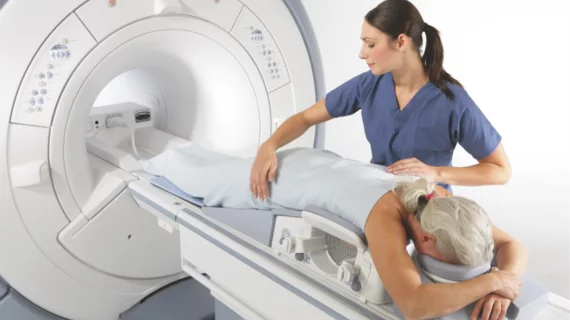Which breast MRI findings can predict lymphovascular invasion in cancer patients?
Tumor apparent diffusion coefficient (ADC) value, peritumoral ADC value and peritumor-tumor ADC value are predictive breast MRI findings for lymphovascular invasion (LVI) in invasive cancer patients, according to new research published in the European Journal of Radiology.
“Identification of predictive findings that are associated with LVI has enabled us to determine the need for additional therapy,” wrote Takao Igarashi, department of radiology at the Jikei University School of Medicine in Tokyo, Japan, and colleagues. “This study was undertaken to characterize preoperative MRI findings that can predict LVI in invasive breast cancer patients with clinically negative nodes.”
The authors studied 140 lesions from 140 patients who underwent preoperative breast MRI and breast surgery. All patients were underwent testing between July 16, 2015, and June 30, 2017. Tumor ADC value, peritumoral ADC value and peritumor-tumor ADC were all “significantly associated” with LVI on univariate analysis in patients aged 55 and older. So, what does this mean for treating invasive breast cancer patients?
“The tumor ADC value showed a significant association with LVI, and the inter-observer agreement for tumor ADC value was substantial between two blinded observers with differences in interpretation experience,” the authors wrote. “Our study suggests that, even when breast cancer patients show clinically negative nodes, if positive LVI is suspected on preoperative MRI, a more aggressive management strategy should be considered; this might include the addition of postoperative adjuvant chemotherapy and/or radiation therapy.”
Igarashi et al. did note that their study had several limitations. For instance, they said a second prospective study would be required to confirm their findings. Also, additional research is needed “to investigate whether radiological size measurement could be a predictor of LVI status, especially in the case of a mass forming lesion.”

